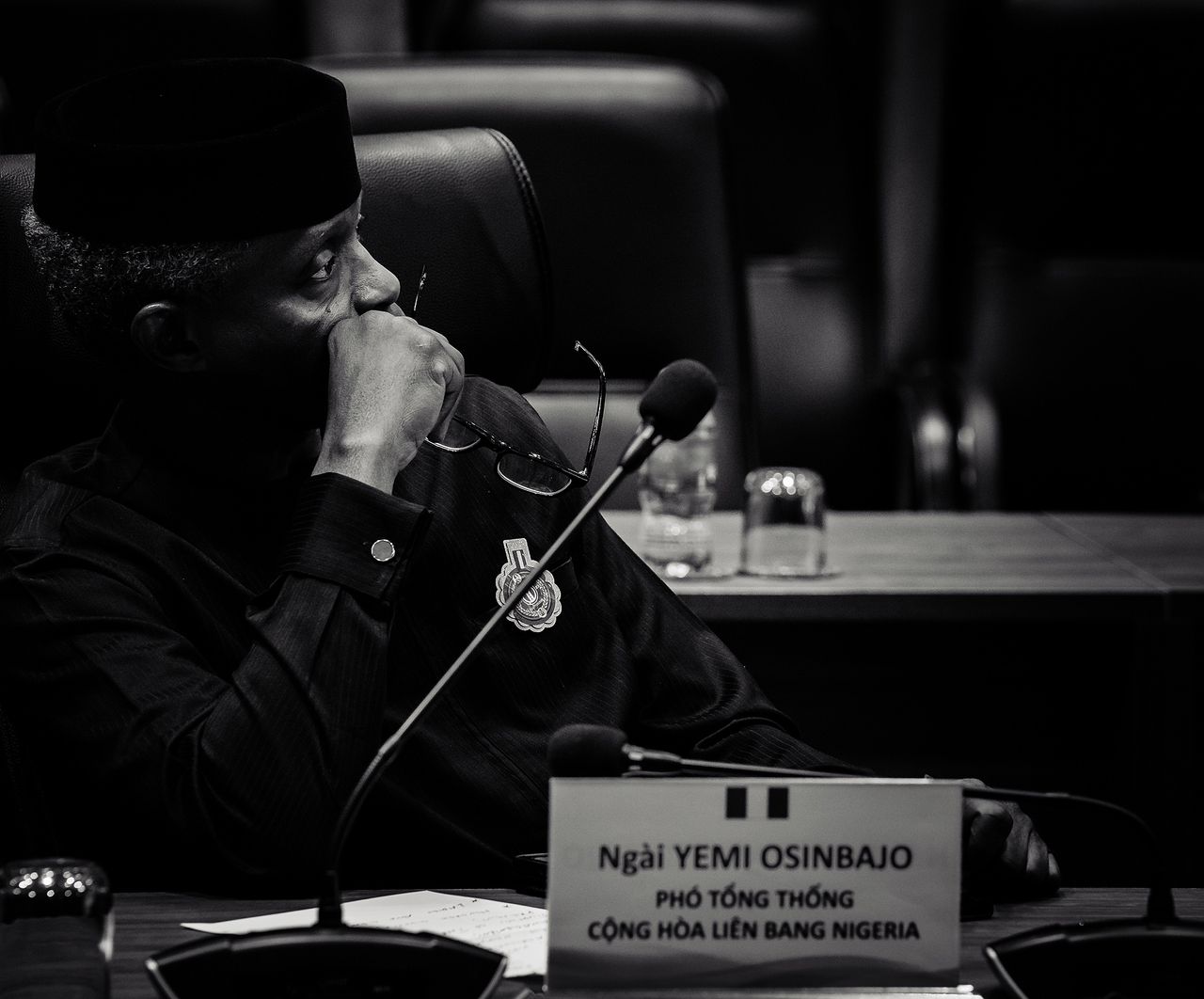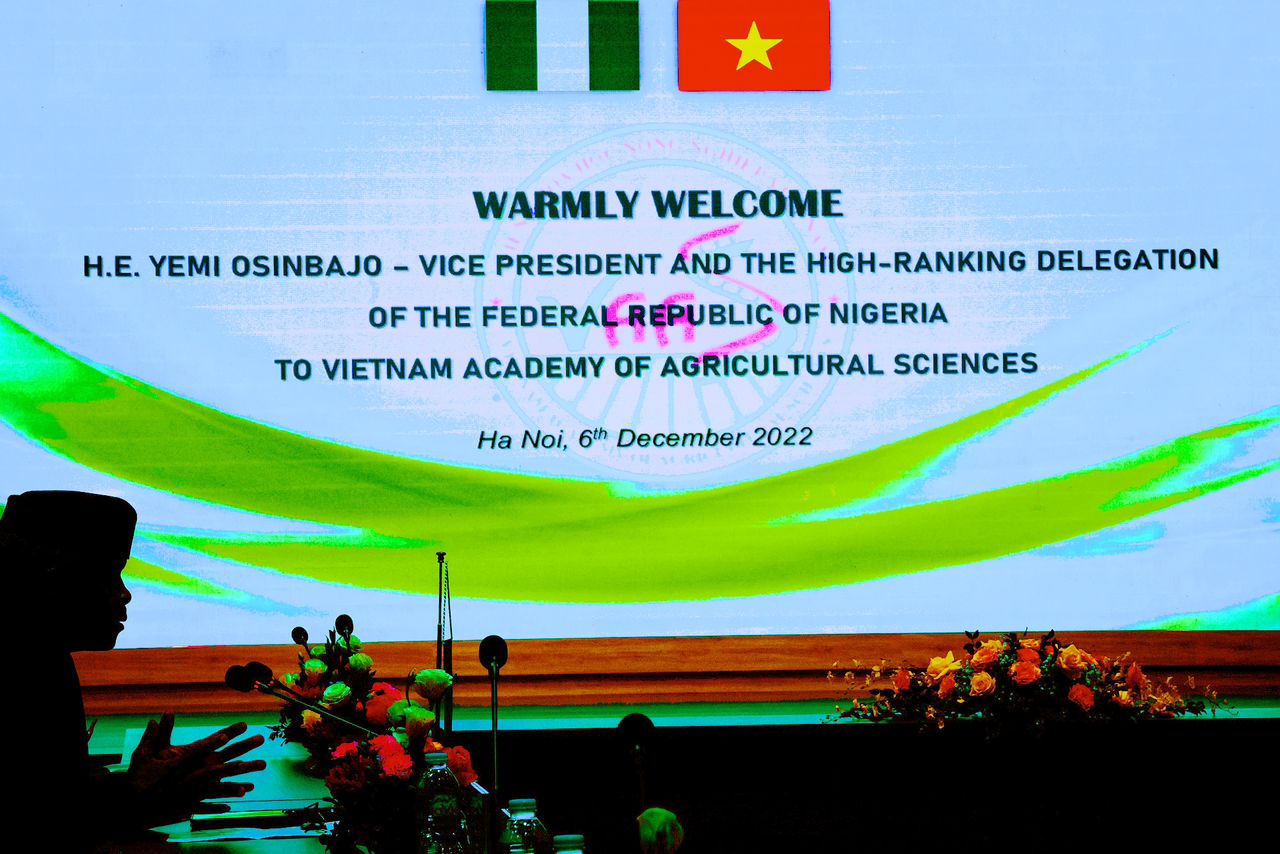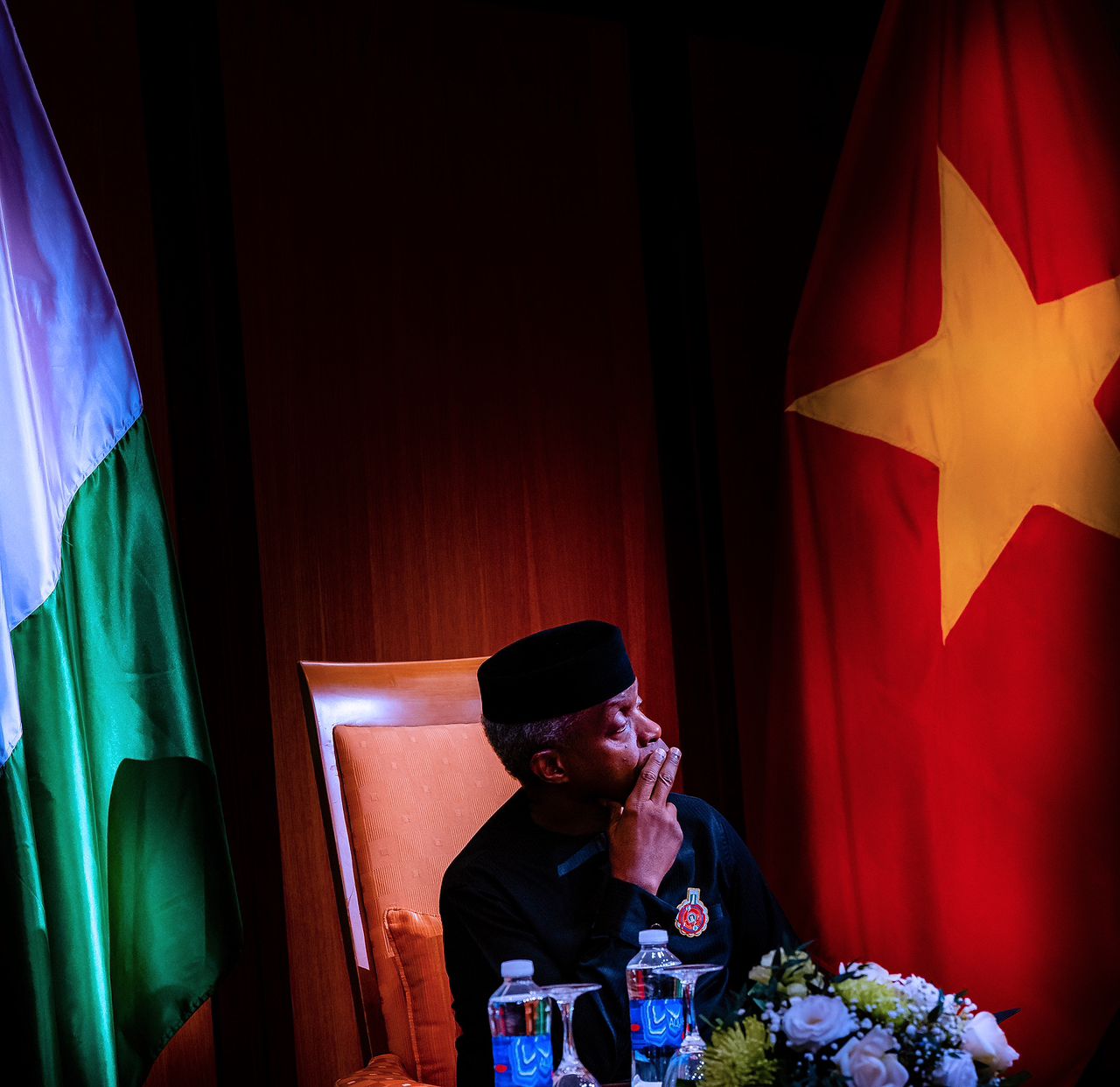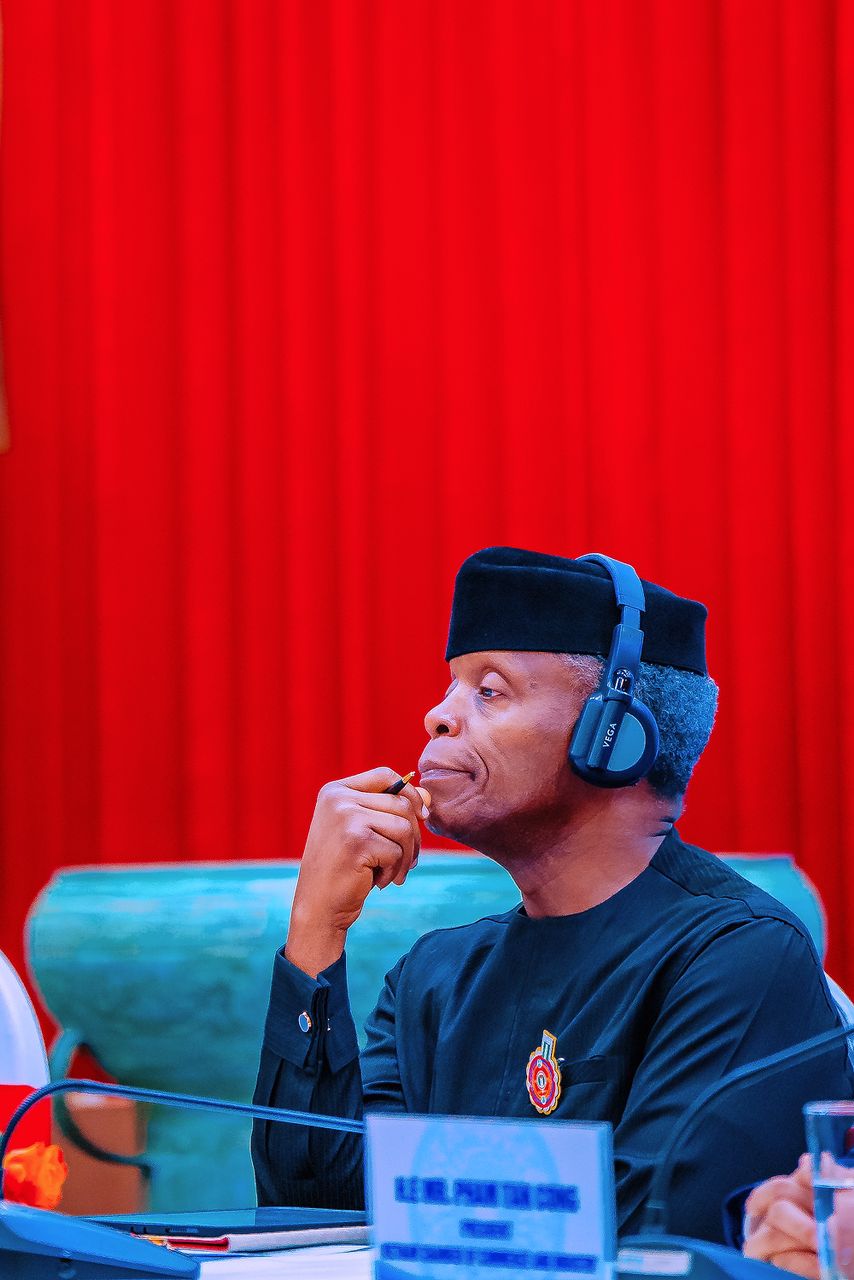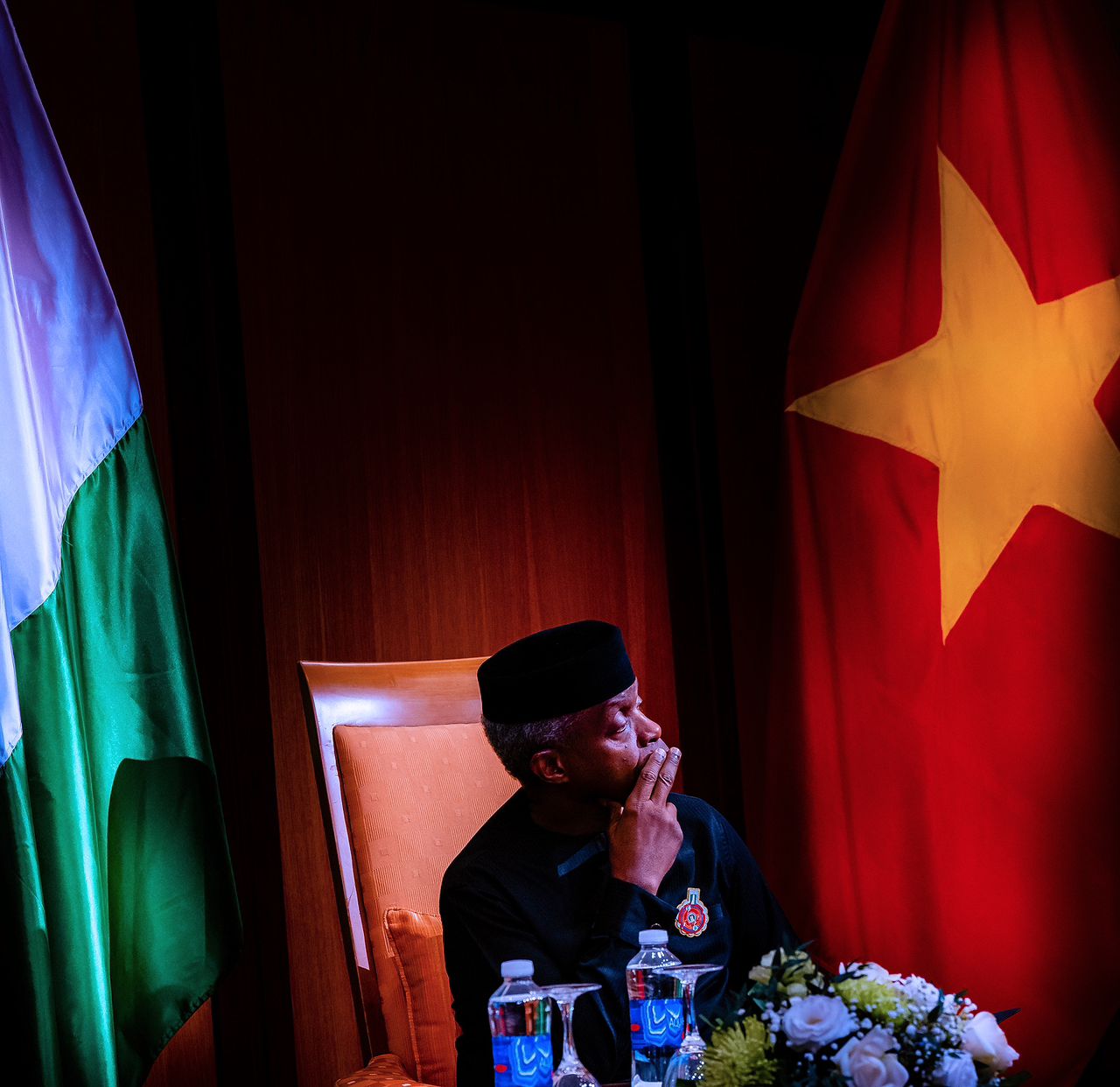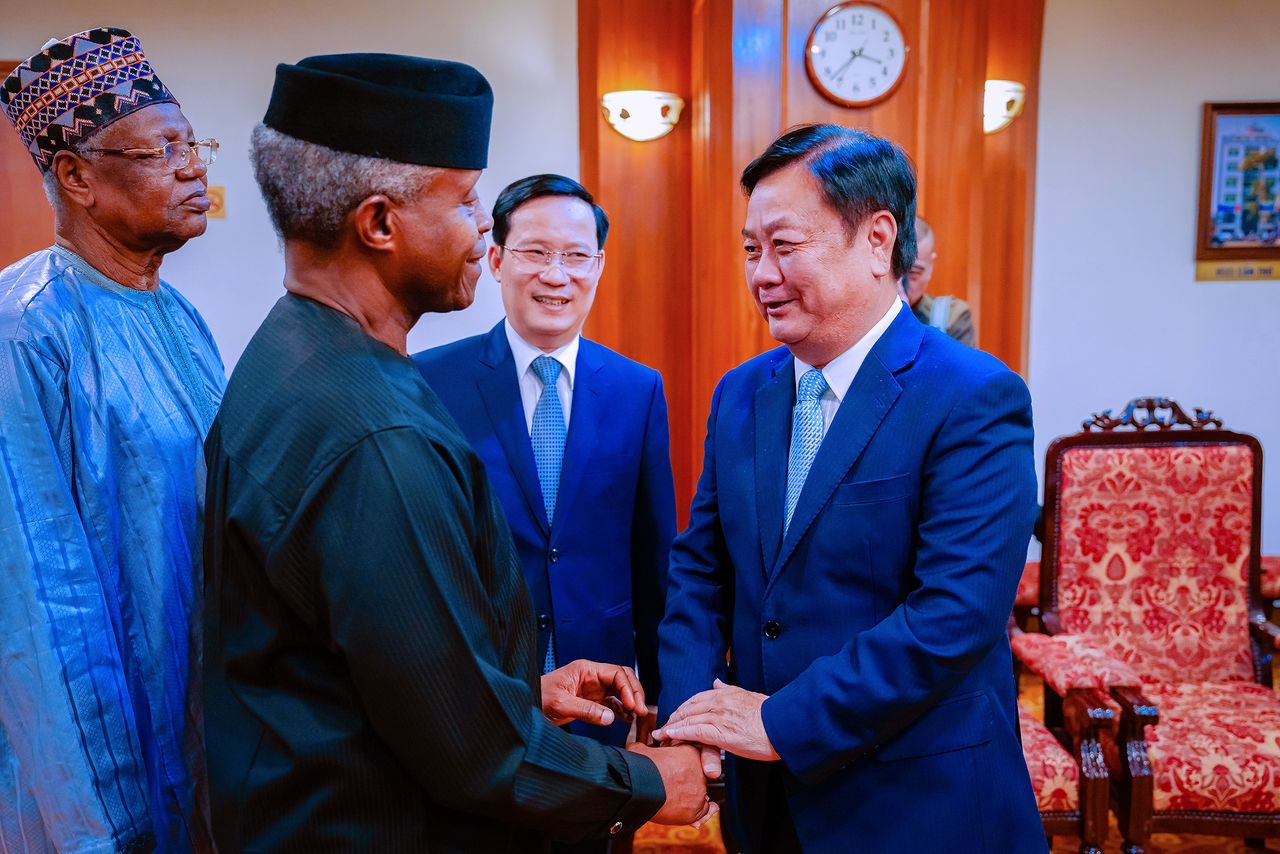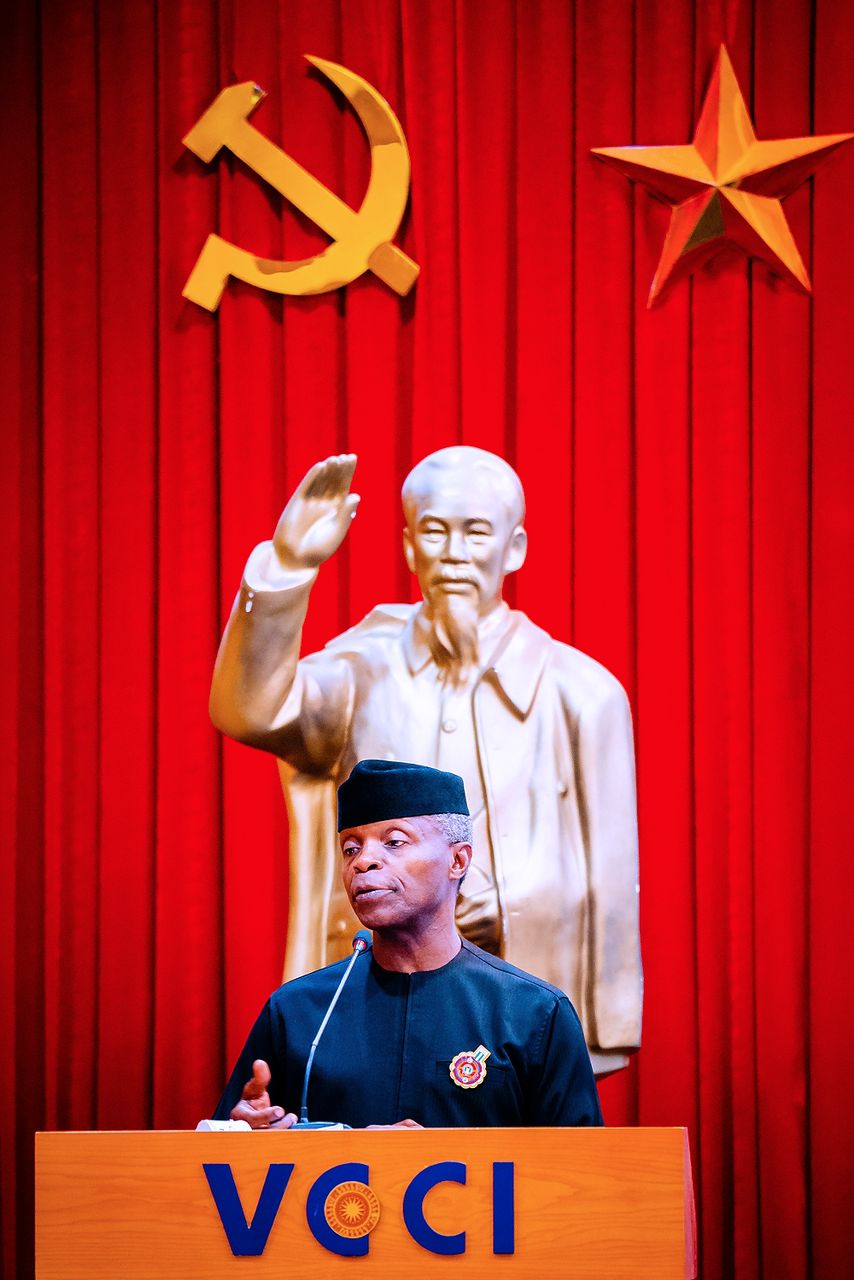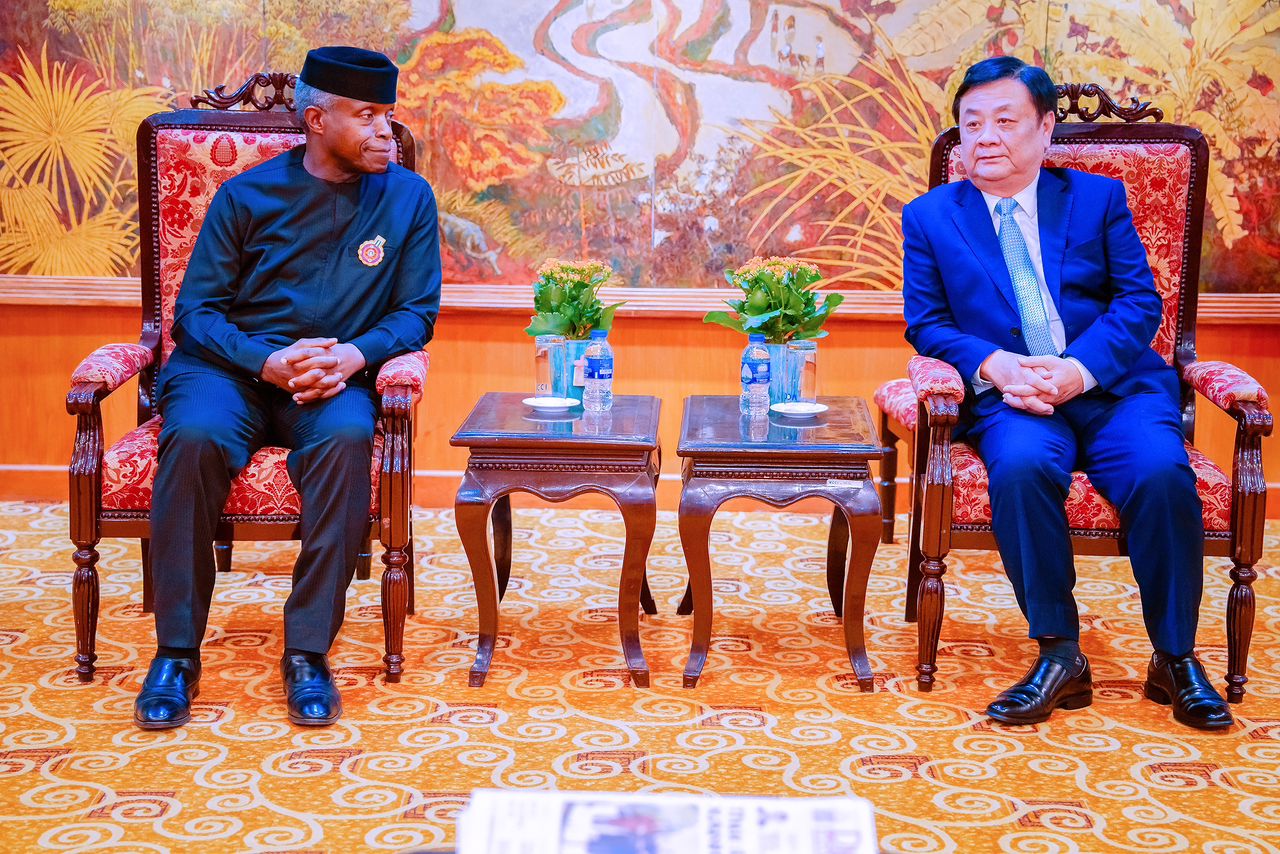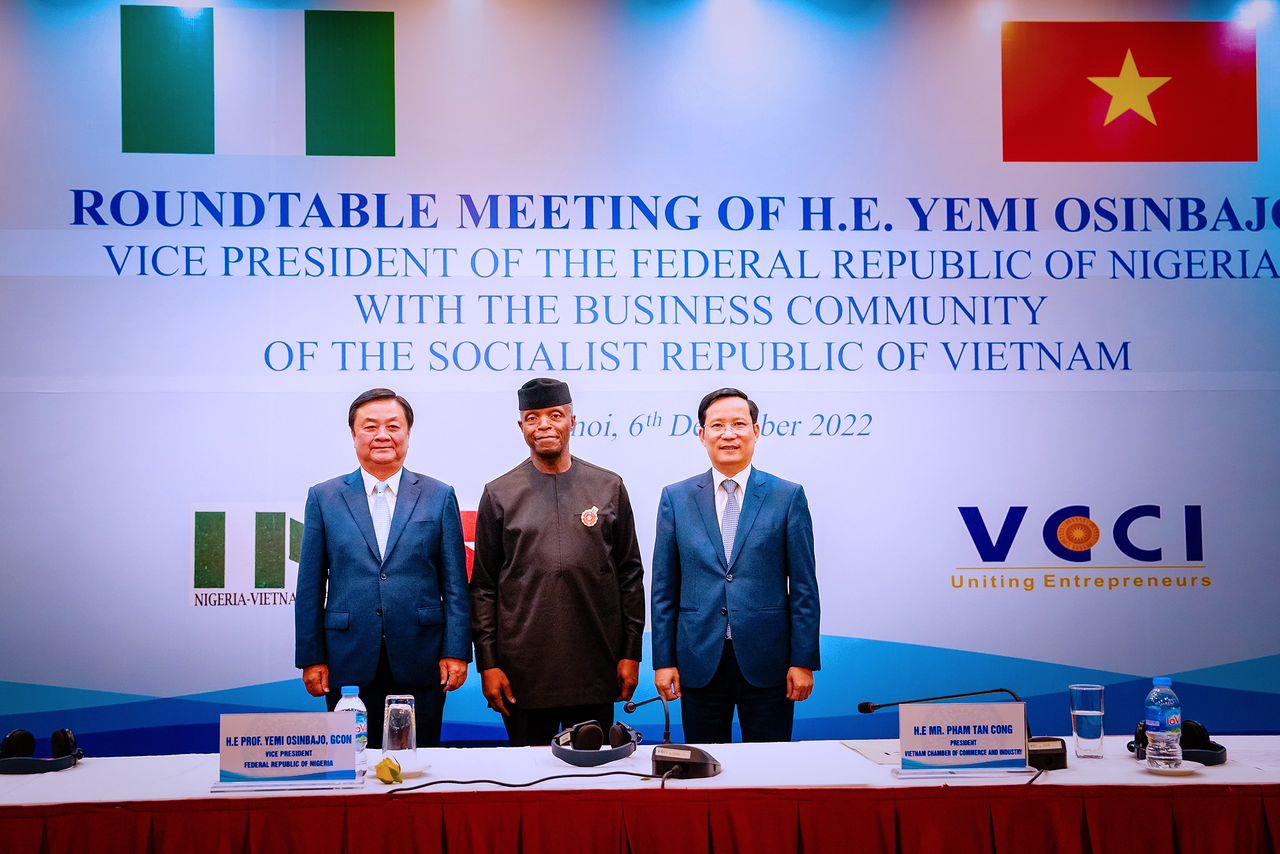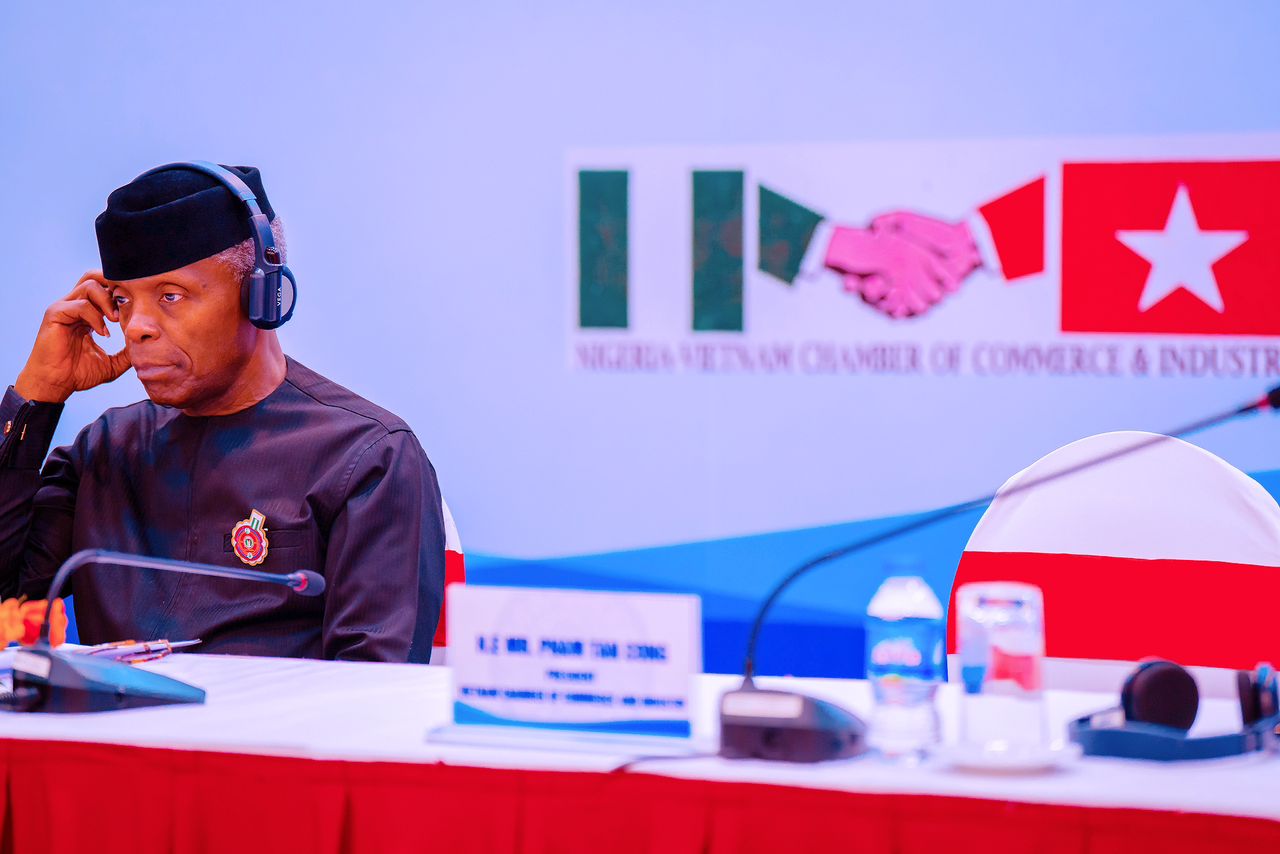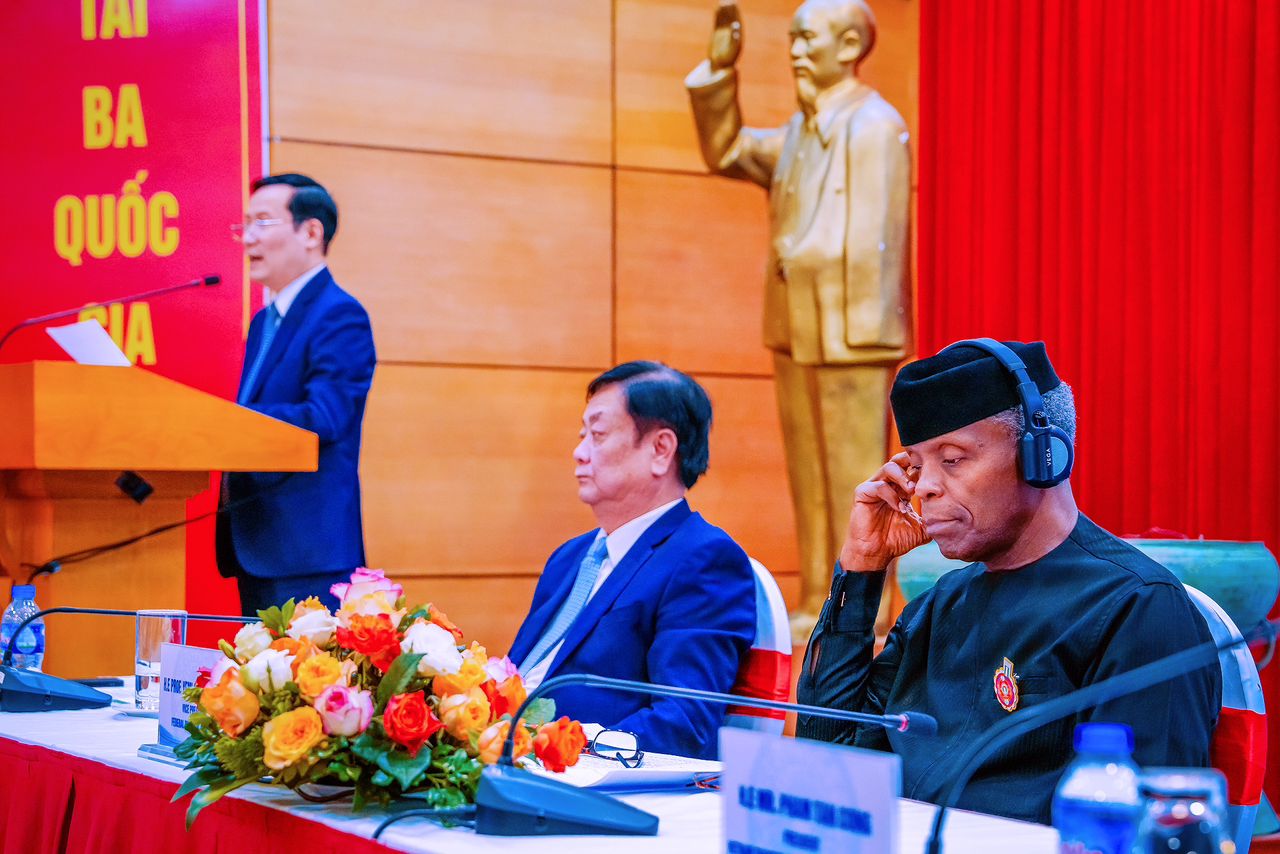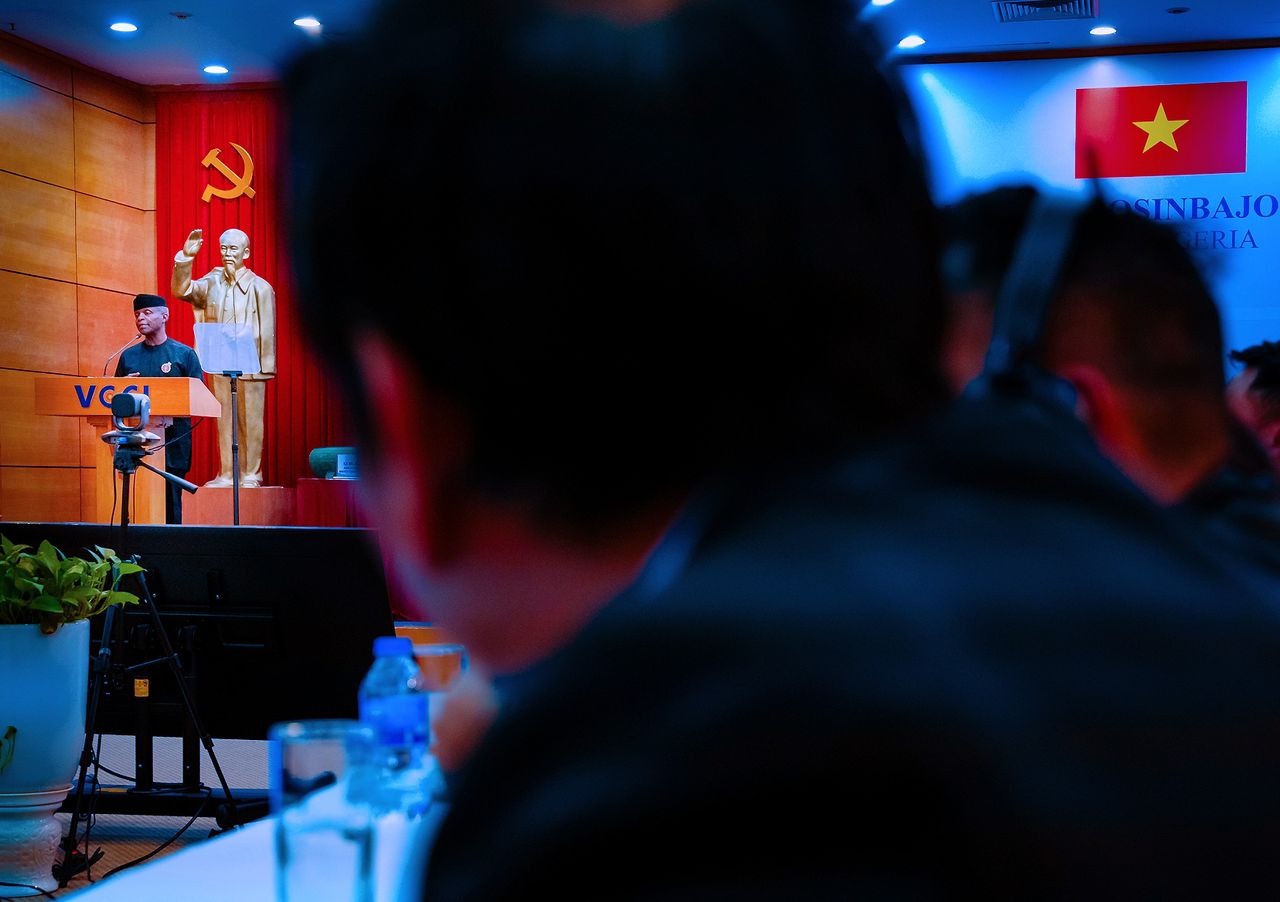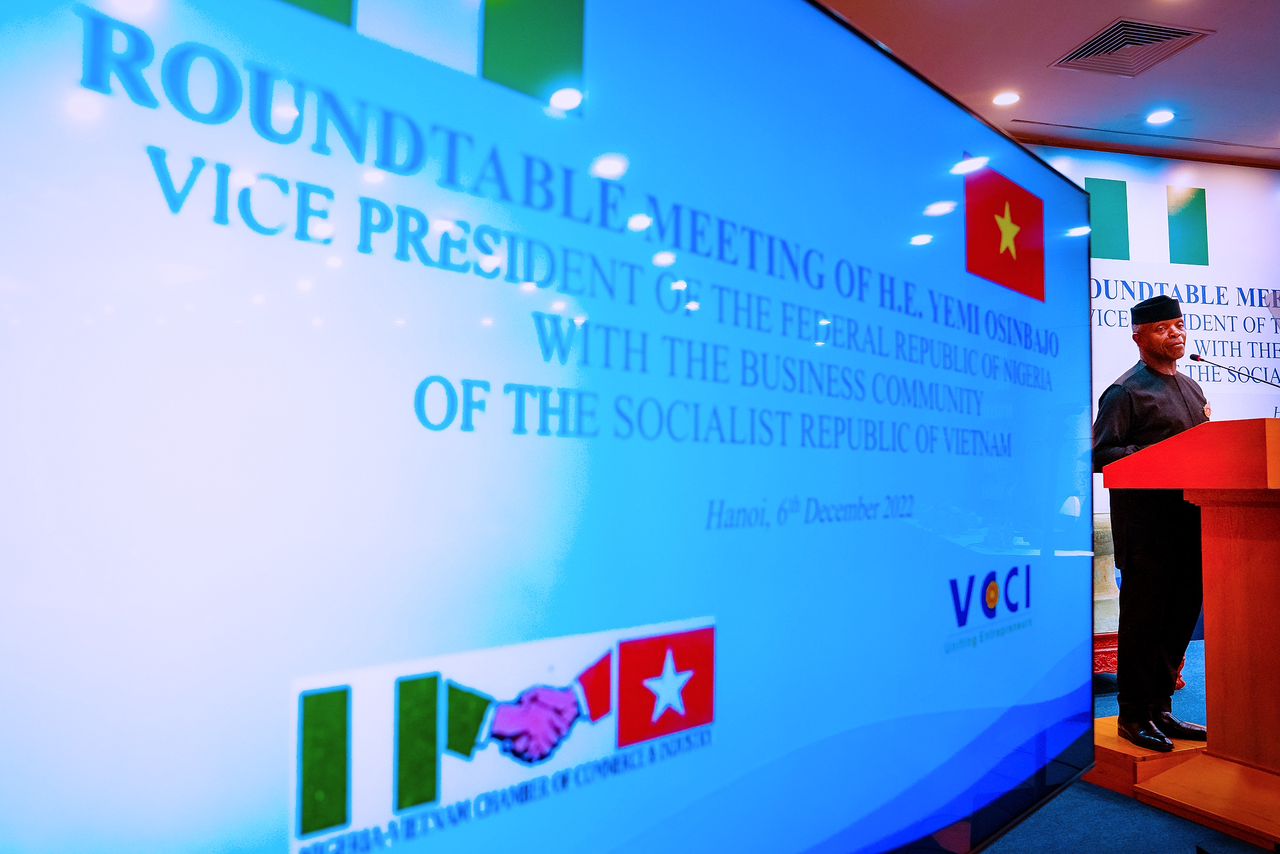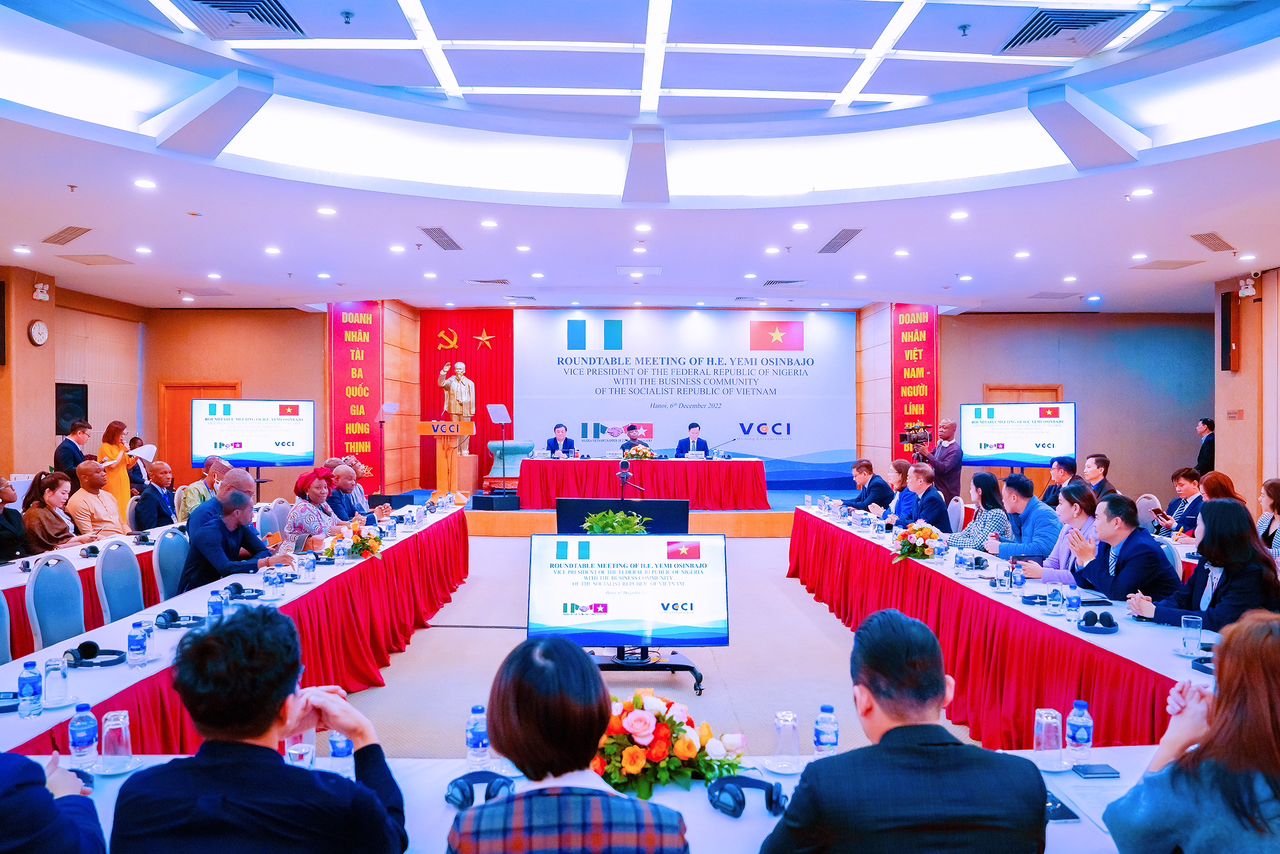Nigeria – Vietnam Business Forum In Hanoi, Vietnam
KEYNOTE ADDRESS BY HIS EXCELLENCY. PROF YEMI OSINBAJO, SAN, GCON, VICE-PRESIDENT OF THE FEDERAL REPUBLIC OF NIGERIA AT THE NIGERIA-VIETNAM BUSINESS FORUM IN HANOI, VIETNAM ON TUESDAY, 6TH DECEMBER 2022
PROTOCOLS
I am pleased to be here with you in the beautiful historic city of Hanoi. And I thank the government of our sister nation, Vietnam for the warm and generous hospitality accorded my delegation and me since we arrived.
We have had a most rewarding visit so far. Yesterday we had really fruitful discussions with both Vice President, Madam Vo Thi Anh Xuan and Prime Minister, Pham Minh Chinh.
My visit to Vietnam is intended to further deepen the ties between our two countries and our business communities. This is especially following the successful visit of the Deputy Prime Minister of Vietnam to Nigeria in October 2019, when he came with a good number of businesses to meet with their Nigerian counterparts.
It is quite clear from my interactions since my arrival here that there is great scope for expanding trade and investment opportunities between Nigeria and Vietnam.
The volume of trade between Nigeria and Vietnam is just over $500million and both governments agree that this is quite small given our combined population of over 300million people with our combined GDP of over $800billion. There is certainly scope for even greater economic cooperation.
Nigeria remains, perhaps, the most intuitive place to do business in Africa. Despite the economic slowdown in the aftermath of the pandemic, GDP growth has been positive for the last seven quarters and though it slowed to 2.3% on a year-to-year basis in the third quarter of this year, it was a 9.7% increase over the second quarter.
Apart from being the most populous country in Africa, Nigeria also has the continent’s largest economy, accounting for over 20% of continental GDP. The Nigerian private sector has undertaken large path-breaking investments in the country in agriculture, manufacturing, petrochemicals, finance, telecommunications and the digital economy.
In agriculture, an area in which Vietnam has also done well, we not only have a large number of successful commercial farms owned by individuals, but in addition, farms owned by companies are also springing up almost on a daily basis.
We are looking forward to the planned collaboration between Vietnam, Nigeria and the FAO. This will assist us with tried and tested technical skills in Agric development and also for investments in cashew processing in Nigeria.
Perhaps I need not mention the well-known investments in the downstream part of the oil and gas industry such as the Nigerian LNG which is building its 7th train, or the investments by the Dangote and BUA Groups in petroleum refining, but a little-known fact is that it is a company from this region, the Tolaram Group, that turned around the Eleme Petrochemical Company in Nigeria from which it is now a major exporter of Urea.
Similar opportunities are available across all parts of the Nigerian economy and since we allow 100 percent ownership by foreign investors, these opportunities are open to partners that wish to invest in our country.
There is also the unconditional remittance of investment capital and profits as well as tax and duty incentives for investors. Other incentives including those that pertain to individual sectors are well detailed in a ‘Compendium of Investment Incentives in Nigeria’ produced by the Nigerian Investment Promotion Commission and our tax authority, the Federal Inland Revenue Service.
In terms of market viability, Nigeria continues to rank very high. Our people are renowned for being energetic and tech-savvy, with over 60% of the population below 25 years of age. Between 2015 and last year, 6 Nigerian tech or tech-based companies have been certified as unicorns. These are companies valued at over a billion US dollars each.
Nigeria is also now home to over 200 stand-alone FinTech companies, plus a number of FinTech solutions offered by banks and mobile network operators as part of their product portfolio. Between 2014 and 2019, Nigeria’s bustling FinTech segment raised over $600 million in funding and attracted a quarter of the almost $500 million raised by African tech startups in 2019 alone.
The creative sector which employs over 4 million people and has potential to add 2.7million by 2025, is ranked the second largest employer of labour after the agricultural sector.
Indeed, we are on course to become the 3rd largest national market, based on headcount, by the year 2050. We are already the largest financial market in Africa with a market capitalization in excess of US$50 billion as of the end of last year.
In the past seven years, we have focused strategically on radically improving infrastructure, to facilitate trade and investment, especially power, roads, railways and broadband connectivity.
In the area of development of Industrial Infrastructure, I think this presents an exciting investment opportunity for both local and foreign investors looking to provide modern facilities for industries such as agribusiness, light manufacturing, construction, oil and gas, especially via Special Economic Zones etc. Nigeria has 17 operational Special Economic Zones with another 4 currently under development. 14 of them are used for export processing, large-scale manufacturing, warehousing, logistic services, tourism, food processing and packaging and technology development, while 3 are focused on oil & gas related activities.
We have also placed improving the business environment at the very heart of Government policy. In the World Bank’s Ease of Doing Business Index before the series was stopped, we moved up by 39 places between 2015 and 2020, primarily due to reforms and initiatives introduced by the Government. Similarly, we emerged as one of the only two African countries to be named among the top 10 most improved economies in the world by the World Bank.
Let me say in this regard that in addition to our domestic market of over 217million people, Nigeria is a gateway to the rest of Africa both as a result of our close ties with other African countries and our location in the continent which is nearly equidistant to all parts.
Our membership in the African Continental Free Trade Area has created incredible opportunities. Investors in Nigeria will have access to Africa’s market of 1.3 billion people and a combined gross domestic product of $3.4 trillion, using Nigeria as a gateway.
Early entrants into Nigeria in terms of trade and investment will surely reap bountiful rewards.
In spite of the huge and promising potential for collaboration between Nigeria and Vietnam, it stands to reason that we are part of the international community and whatever happens in the rest of the world will affect our fortunes individually and collectively. We saw this very clearly during the COVID-19 pandemic with associated lockdown and supply chain disruptions which slowed economic growth.
We are also seeing it from the geopolitical tensions in Europe which impacted negatively on the food, fuel and fertilizer sectors thus contributing to inflation. We, therefore, share an obligation to work together to promote international peace and understanding at the United Nations and also through our respective multilateral forums such as the African Union and the Association of South East Asian Nations (ASEAN).
We are at a crucial time for the world economy and global dynamics, and climate change has created challenges for us all. As a country still striving to provide millions of its people with electricity and with considerable fossil fuel assets, Nigeria continues to call for a just transition towards net zero carbon emissions.
In our case, we are aiming for net zero by the year 2060. However, we need energy to help us grow in order to successfully tackle poverty so we continue to request that developed countries help us overcome energy poverty while reducing carbon emissions by enabling the use of natural gas instead of more polluting fossil fuels to power industry and for clean cooking.
The use of LPG for cooking instead of firewood or charcoal will save forests from being cut down for use as firewood.
But there are opportunities here also for investments in renewables. Under our recently launched energy transition plan, we have a pipeline of potential green investments, especially renewables, solar, wind and hydrogen.
We already have a solar initiative where with both the Central Bank of Nigeria and World Bank support to the private sector, we are connecting 5 million homes with solar power. This opens up huge opportunities for local manufacturing of solar components, and mini-grids.
We are also keen on collaborations on the manufacturing of electric cars and charging stations.
Before I conclude, may I restate my appreciation to the Government of the Socialist Republic of Vietnam as well as the business communities of Nigeria and Vietnam for hosting this very important business forum. I thank in particular, the Nigerian Ambassador to Vietnam, Mr. Hassan Adamu Mammani, as well as the leaders of the Nigerian and Vietnamese Business Associations that have worked assiduously to put this event together.
I am certain that this Forum will help to bring about increased trade and investment ties between Nigeria and Vietnam and given the spirit of collaboration already shown, I expect that we will see an increased volume of trade and investment between both countries.
Thank you very much for your kind attention.


